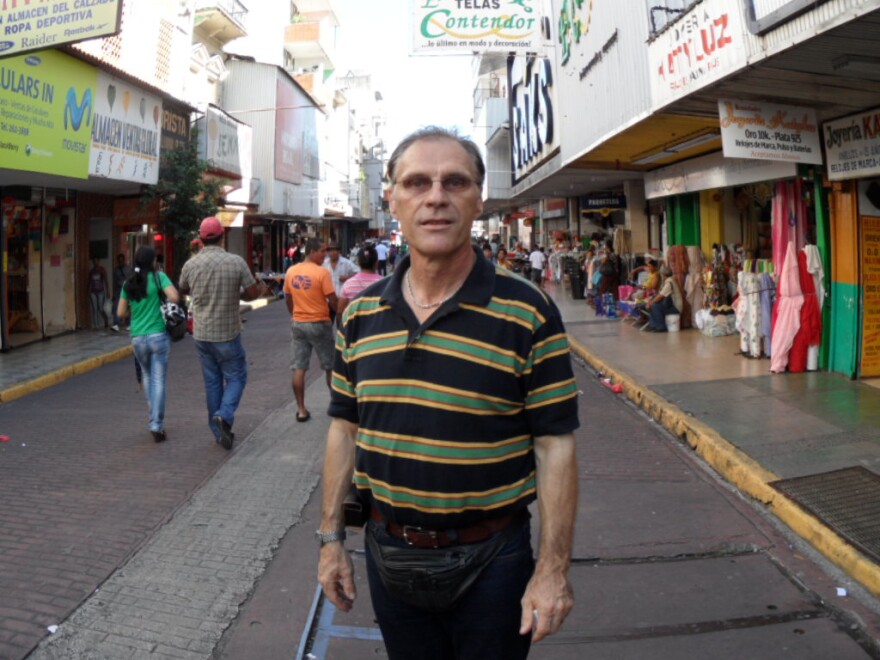James Dwyer reminisces about his trip to Panama last May.
“It was just a great experience,” he said. “If you could have a good experience getting a root canal, I would say it was the best.”
Dwyer had never considered dental care overseas – that is until his appointment for a root canal got canceled weeks before his trip to Panama.
He surfed the Internet for more information and came across Dental Destinations. The Naples company and others like it check out dental clinics in Central America and abroad for quality and safety so people who go there can rest assured.
The company referred Dwyer to a dentist in Panama.
“They made sure that everybody they were referring you to met U.S. dental standards,” he said.
“So you weren’t going down and somebody was going to pull your tooth with a shot of whiskey and a bullet. They scouted out and did their homework. I’m very satisfied with the people they referred me to.”
A growing number of Americans are visiting other countries to get dental work at a fraction of the price. Saving fifty percent or more on a crown or root canal can be attractive, but it’s hard to gauge the quality and safety of these clinics thousands of miles away. No international inspection body exists specifically for dental care.
But companies like Dental Destinations are working to give dental tourists peace of mind by doing its own inspections of these clinics.
CEO Michael Hardenbrook founded Dental Destinations in 2009 after his own experience being a dental tourist in Costa Rica.
“I started thinking… it was a bit of a scary experience. I had never (like anyone in the U.S.) taken on the task of evaluating a dentist,” he said.
“I’m sifting through papers and it was a complicated process. I thought there has be a better way and a safer way.”
Hardenbrook partnered with Dr. Ron Peterson. The Arizona dentist worked about 20 years in U.S. dental inspection, regulation, and quality assurance. Peterson designed an evaluation protocol based on his experience.
After pre-screening them, he and Hardenbrook travel to clinics in Mexico, Panama, and Costa Rica. Peterson assesses the dentist’s training, the safety of the office, its infection control, and the quality of the dental work.
“We’ve had some offices where we’ve walked in, looked around, and then said, ‘Thanks very much,’ and left. We felt like they were beyond improvement. [For] others, we’ve spent several hours,” said Peterson.
They approve about one in ten offices. The one in Costa Rica where Hardenbrook got his dental work done was not one of them.
Dental Destinations receives a percentage of the treatment cost from approved clinics if they make a referral. The cost for the patient remains the same.
Several companies exist worldwide to help dental tourists find dentists abroad. Hardenbrook says his company plays an important role for consumers.
“We fill the void for the people who are looking for the same exact treatment – that want quality and safety, but they can’t otherwise afford that quality and safety here in the U.S.”
But some question whether these companies really can assure that same quality.
The American Dental Association (ADA) doesn’t recognize any group or company for its inspections of dental providers abroad.
Dr. Brian Gear is a dentist based in Lehigh Acres. He looks at x-rays of his patient who got dental implants in Costa Rica.
“You don’t have to be a dentist to figure out there’s a separation and a screw here that doesn’t even fit into the threads of the implant itself,” he said.
Gear and his two partners say they see one to two patients a month who have gone abroad for dental work.
“I’ve seen some nice cases, which were done in other countries. I just happen to see more problems,” said Gear.
His partner Dr. Miguel Scheel trained in Ecuador and says people need to do their homework.
“The dentistry there is not that bad. It depends on who you go with. You have to find the right dentist. [It’s the] same in the U.S. – you can get a really good dentist or a really bad dentist. It happens.”
But it’s not always easy to determine what practice is good or not in a country thousands of miles away.
Dr. Edmond Hewlett is a spokesman for the ADA and a professor at the University of California, Los Angeles School of Dentistry. He says, although the ADA doesn’t recognize any dental tourism companies, “that’s not to say they’re not doing a thorough job of checking out practices.”
Hewlett says the companies can serve as a source of information for consumers – consumers like James Dwyer.
Half a year later, Dwyer says he is satisfied with the experience.
“No problems. It was really good. I would go back again for sure – and hopefully I won’t have to,” he said, laughing.
But Dwyer does say he’s considering getting a check-up and cleaning at that dental office next time he’s in Panama.


